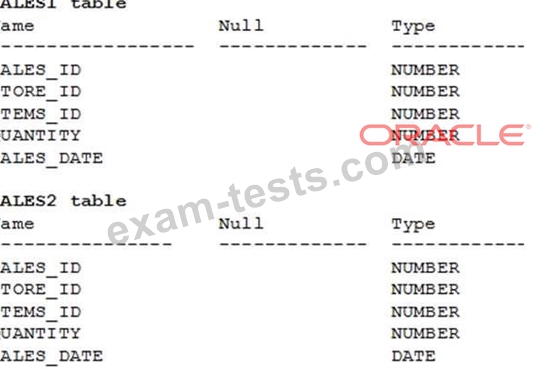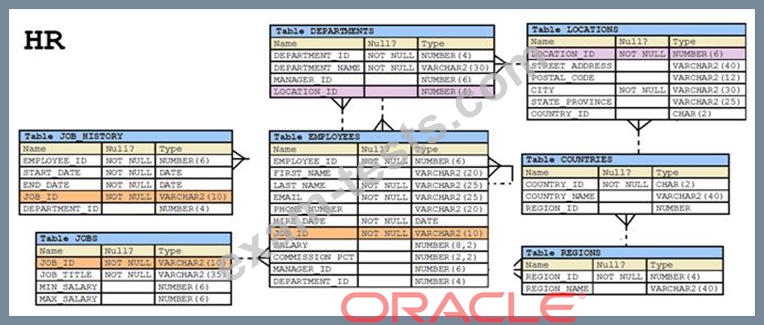Question 36
Sales data of a company is stored in two tables, SALES1and SALES2, with some data being duplicated across the tables. You want to display the results from the SALES1table, which are not present in the SALES2table.

Which set operator generates the required output?

Which set operator generates the required output?
Question 37
Examine this query:

Which two methods should you use to prevent prompting for a hire date value when this query is executed?

Which two methods should you use to prevent prompting for a hire date value when this query is executed?
Question 38
You execute this query:

What is the result?

What is the result?
Question 39
View the Exhibit and examine the structure in the EMPLOYEES tables.

Evaluate the following SQL statement:
SELECT employee_id, department_id
FROM employees
WHERE department_id= 50 ORDER BY department_id
UNION
SELECT employee_id, department_id
FROM employees
WHERE department_id= 90
UNION
SELECT employee_id, department_id
FROM employees
WHERE department_id= 10;
What would be the outcome of the above SQL statement?

Evaluate the following SQL statement:
SELECT employee_id, department_id
FROM employees
WHERE department_id= 50 ORDER BY department_id
UNION
SELECT employee_id, department_id
FROM employees
WHERE department_id= 90
UNION
SELECT employee_id, department_id
FROM employees
WHERE department_id= 10;
What would be the outcome of the above SQL statement?
Question 40
Which two statements are true about Data Manipulation Language (DML) statements? (Choose two.)

